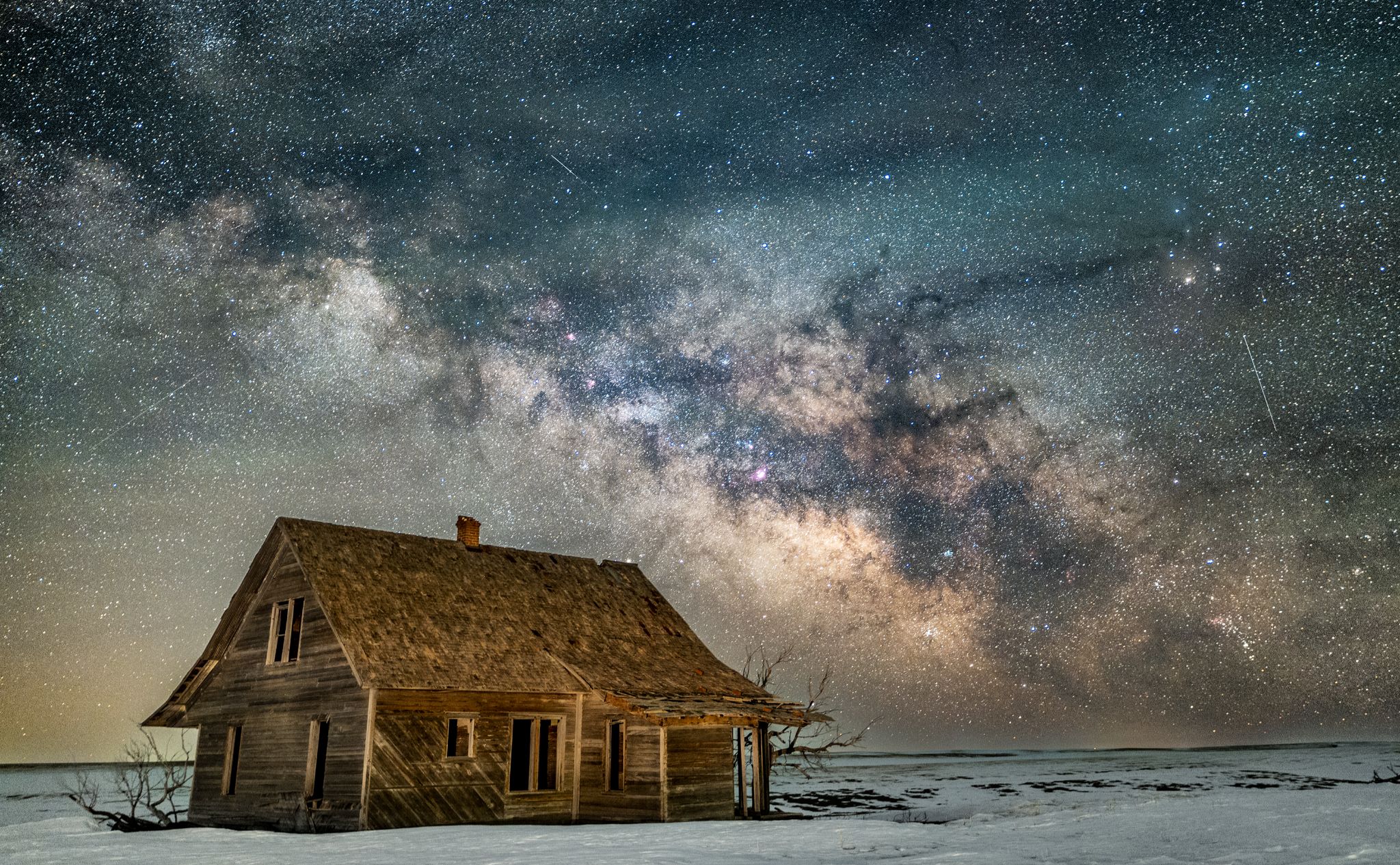EarthSky Community Photos
Submit your photo here. Comment or upvote on photo pages. Search via photographers' names. More improvements coming! To help, please donate.

Last Chance, Colorado
04:56 am
Camera body: Canon Ra + EF/RF adapter with drop-in filter slot
Lens: Sigma 28mm f/1.4 Art Series lens
Drop-in Filter: Kolari Vision UV/IR Cut H-Alpha Pass Drop-In Filter for Kolari/Canon EF-EOS R Drop-In Adapter
Mount: Sky Watcher Star Adventurer Pro
Tripod: Manfrotto
Shutter/camera control: Canon Connect phone app for Android
This is a single image so no stacking or aligning software...just Adobe Camera RAW for improvement of contrast in sky, some use of "Clarity" and "Dehaze" features, as well as minor adjustments to color luminosity and saturation
Little House on the Prairie
I had ordered the Kolari Vision UV/IR Cut H-Alpha Pass Drop-In Filter late in the "Milky Way season" last year and missed my opportunity to play with it--I just wanted to try it in front of my Canon Ra sensor just to see what might happen--and this image taken at 4:46am on the morning of Feb 20, 2023, which was about 10 mins prior to the end of Dark Night, was the first decent opportunity for me to take a snap shot of the Milky Way.
1 image,
Exposure: 30 second
f/1.4
ISO 3200
Mount tracking speed: 1/2 speed
I probably over-exposed this image by about 5 seconds and probably should've bumped either the f/stop up a notch or the ISO down a notch...but for me, as "single image" astro-landscape photographer, I tend to err on the side of gather a little too much data versus too little.
As such, I realize there's some star trails in this image--It's always a trade-off for me as a "one click = one pic" photographer as to how much data can I gather without jacking up both (or either) the foreground or the stars in the background. I've used the tracker before and prior to this always on the speed for tracking the stars--this results in very precise round stars but the foreground can be/often is blurred and I can very easily turn it off for static image of the foreground and blend them together but I dont want to do that.
Also, I do all of the foreground light painting with a flashlight or lantern or headlamp. I know many folks like to set up LED panels to reduce the randomness in an image, but again for this old dinosaur who's looking for that tar pit to fall into, I kinda like the randomness of some images looking great and other looking "less great"...dumb...I know but a lot of fun things are superficially dumb (which is why I love skydiving and skiing...but hey those are different topics)
In post, I do take the RAW image and create multiple copies of the single image and I will post-process them individually--each separately and to my tastes at that moment--while letting my eyes rest between each "version" of the same image. I then gather the variations on a theme and blend the parts I like the best from each into a finalized image.
Anyway...that's how I do it.








